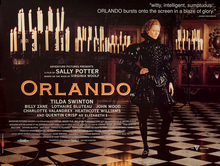The Falling (2014) is written and directed by Carol Morely, has an almost exclusive female cast, and most of the crew were female too. Maisie Williams, the lead, said in an interview that there aren't as many coming of age stories with female leads because people often feel weird talking about girls wanting to have sex. Like, it's okay for boys, but for some reason when it's about girls people feel like it's taboo, and it's really one of the most normal things in life. She also speculated that it might be because of how most film makers are men, and it's a bit awkward for a male director or producer to be talking about it with a teenage girl. That and the fact that men just can't really understand it because they haven't experienced what it's like to be a teenage girl. Maisie said that it was great working with a female director in that scenario because she understood and they could talk about those things without it being weird.
This video shows interviews of Carol Morely, Maisie Williams, Florence Pugh, and Maxine Peake about the movie The Falling, and also a bit about Game of Thrones from Maisie. That's where I got the above details from.
This video shows interviews of Carol Morely, Maisie Williams, Florence Pugh, and Maxine Peake about the movie The Falling, and also a bit about Game of Thrones from Maisie. That's where I got the above details from.




 .
.
 ! Quentin Crisp played Elizabeth I and he was brilliant.
! Quentin Crisp played Elizabeth I and he was brilliant.